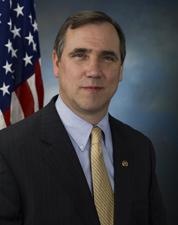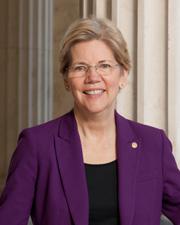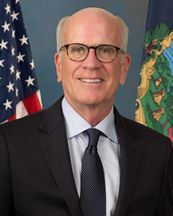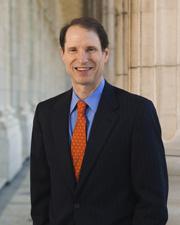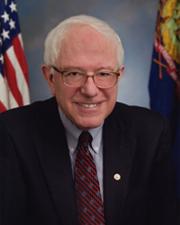0
0
0
Break Free From Plastic Pollution Act of 2023
12/15/2023, 4:09 PM
Summary of Bill S 3127
Bill 118 s 3127, also known as the Break Free From Plastic Pollution Act of 2023, is a piece of legislation introduced in the US Congress aimed at addressing the growing issue of plastic pollution in the country. The bill is designed to reduce the production and use of single-use plastics, increase recycling rates, and hold plastic producers accountable for the waste they create.
Key provisions of the bill include:
1. Extended Producer Responsibility: The bill would require plastic producers to take responsibility for the entire lifecycle of their products, including collection, recycling, and disposal. This would incentivize producers to create more sustainable packaging and reduce the amount of plastic waste entering the environment. 2. Ban on Single-Use Plastics: The bill would ban certain single-use plastic products, such as plastic bags, straws, and utensils, in an effort to reduce the amount of plastic waste generated by consumers. 3. Recycling Infrastructure: The bill would invest in improving recycling infrastructure across the country, making it easier for consumers to recycle their plastic waste and reducing the amount of plastic that ends up in landfills or the ocean. 4. Plastic Pollution Reduction Targets: The bill would set targets for reducing plastic pollution in the environment, including reducing the amount of plastic waste entering the ocean and increasing recycling rates. Overall, the Break Free From Plastic Pollution Act of 2023 aims to tackle the growing problem of plastic pollution in the US by holding plastic producers accountable, banning certain single-use plastics, investing in recycling infrastructure, and setting targets for reducing plastic waste.
Key provisions of the bill include:
1. Extended Producer Responsibility: The bill would require plastic producers to take responsibility for the entire lifecycle of their products, including collection, recycling, and disposal. This would incentivize producers to create more sustainable packaging and reduce the amount of plastic waste entering the environment. 2. Ban on Single-Use Plastics: The bill would ban certain single-use plastic products, such as plastic bags, straws, and utensils, in an effort to reduce the amount of plastic waste generated by consumers. 3. Recycling Infrastructure: The bill would invest in improving recycling infrastructure across the country, making it easier for consumers to recycle their plastic waste and reducing the amount of plastic that ends up in landfills or the ocean. 4. Plastic Pollution Reduction Targets: The bill would set targets for reducing plastic pollution in the environment, including reducing the amount of plastic waste entering the ocean and increasing recycling rates. Overall, the Break Free From Plastic Pollution Act of 2023 aims to tackle the growing problem of plastic pollution in the US by holding plastic producers accountable, banning certain single-use plastics, investing in recycling infrastructure, and setting targets for reducing plastic waste.
Read the Full Bill
Current Status of Bill S 3127
Bill S 3127 is currently in the status of Bill Introduced since October 25, 2023. Bill S 3127 was introduced during Congress 118 and was introduced to the Senate on October 25, 2023. Bill S 3127's most recent activity was Read twice and referred to the Committee on Environment and Public Works. as of October 25, 2023
Bipartisan Support of Bill S 3127
Total Number of Sponsors
1Democrat Sponsors
1Republican Sponsors
0Unaffiliated Sponsors
0Total Number of Cosponsors
22Democrat Cosponsors
20Republican Cosponsors
0Unaffiliated Cosponsors
2Policy Area and Potential Impact of Bill S 3127
Primary Policy Focus
Environmental ProtectionAlternate Title(s) of Bill S 3127
Break Free From Plastic Pollution Act of 2023
Break Free From Plastic Pollution Act of 2023
Protecting Communities from Plastics Act
A bill to amend the Solid Waste Disposal Act to reduce the production and use of certain single-use plastic products and packaging, to improve the responsibility of producers in the design, collection, reuse, recycling, and disposal of consumer products and packaging, to prevent pollution from consumer products and packaging from entering into animal and human food chains and waterways, and for other purposes.
Comments
Sponsors and Cosponsors of S 3127
Latest Bills
Providing amounts for the expenses of the Committee on Ethics in the One Hundred Nineteenth Congress.
Bill HRES 131December 12, 2025
Providing for congressional disapproval under chapter 8 of title 5, United States Code, of the rule submitted by the Bureau of Land Management relating to "Central Yukon Record of Decision and Approved Resource Management Plan".
Bill HJRES 106December 12, 2025
Expressing the sense of the House of Representatives in condemning the Government of the People's Republic of China for its harassment and efforts to intimidate American citizens and other individuals on United States soil with the goal of suppressing speech and narratives the People's Republic of China finds unwelcome.
Bill HRES 130December 12, 2025
Providing for congressional disapproval under chapter 8 of title 5, United States Code, of the rule submitted by the Bureau of Land Management relating to "North Dakota Field Office Record of Decision and Approved Resource Management Plan".
Bill HJRES 105December 12, 2025
Providing for congressional disapproval under chapter 8 of title 5, United States Code, of the rule submitted by the Bureau of Land Management relating to "Miles City Field Office Record of Decision and Approved Resource Management Plan Amendment".
Bill HJRES 104December 12, 2025
Providing amounts for the expenses of the Select Committee on the Strategic Competition Between the United States and the Chinese Communist Party in the One Hundred Nineteenth Congress.
Bill HRES 104December 12, 2025
Critical Access for Veterans Care Act
Bill S 1868December 12, 2025
OATH Act of 2025
Bill S 1665December 12, 2025
A bill to extend the authority for modifications to the Second Division Memorial in the District of Columbia.
Bill S 1353December 12, 2025
Saving Our Veterans Lives Act of 2025
Bill S 926December 12, 2025
Plastic Pellet Free Waters Act
Bill S 2337March 8, 2024
Break Free From Plastic Pollution Act of 2023
Bill HR 6053March 9, 2024
